Three False Christs: The Myth, the Mortal, and the Guru
by Carl Olson
Filed under Jesus
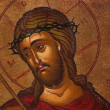
Albert Schweitzer, in the opening pages of his famous and influential 1906 book The Quest of the Historical Jesus, wrote, "And so each subsequent epoch in theology found its own ideas in Jesus, and could find no other way of bringing him to life. Not only epochs found themselves in him. Each individual recreated him in the image of his own personality." Examples abound: Many atheists insist that Jesus didn't even exist or that, if he did, he is either lost in the mists of time or misused... Read More
Does Luke Contradict Himself on When Jesus Was Born?
by Jimmy Akin
Filed under Historicity, The Incarnation
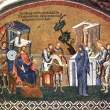
St. Luke begins the second chapter of his Gospel with a chronological note about when Jesus was born, writing: "In those days a decree went out from Caesar Augustus that all the world should be enrolled. This was the first enrollment, when Quirinius was governor of Syria." (Luke 2:1-2) This passage has been subject to a lot of criticism, because Luke has already linked the birth of Jesus to reign of Herod the Great (Luke 1:5), and Quirinius did not become governor of Syria until years... Read More
The 100-Year Old Mistake About the Birth of Jesus
by Jimmy Akin
Filed under Historicity, The Incarnation
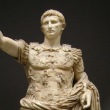
You know how people often say that Jesus was born in 4 B.C., 6 B.C., 7 B.C., or a time earlier still? The calculations that lead to these dates are all based on a proposal that was made just over a hundred years ago. But now scholars are challenging this proposal, because it looks like it's wrong. And it's been distorting our understanding of when Jesus was born for over a hundred years. Here's the story. . . . When Herod Died The Gospel of Matthew records that Jesus was born during... Read More
Does the Shroud of Turin Prove God?
by Fr. Dwight Longenecker
Filed under The Existence of God, The Resurrection
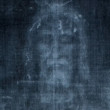
I've written here at Strange Notions in the past about miracles and skepticism, and about the greatest miracle claim of all, Jesus' resurrection from the dead. Such miracles serve as arguments for God’s existence, but not philosophical arguments based on design, prime movers, etc. They are based on physical, historical evidence. The arguments go like this: If atheistic materialism is true, then the natural world must be a closed system. Everything must be explained within that closed... Read More
Did the Accounts of Jesus Evolve?
by Joe Heschmeyer
Filed under Historicity

Biblical skeptics often surmise that the earliest New Testament books tell a very different story than the later books: that the story of Jesus grew with time, becoming more and more incredible, and less and less historical. In other words, the New Testament evolved from history to religious mythology. Recently, I've seen this argument raised about both the Resurrection and the divinity of Christ. First, retired Episcopal Bishop John Shelby Spong (who denies the Resurrection) attacked... Read More
Did Jesus Really Rise from the Dead?
by Fr. Dwight Longenecker
Filed under The Resurrection
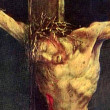
Last week I wrote a post here on David Hume, miracles, and the resurrection of Jesus. Some of the commenters took issue with my claim that "all the alternatives to the fact of the resurrection of Jesus Christ from the dead are more incredible than the miracle." I'd like to elaborate on that here. Christians claim that the historical human being Jesus of Nazareth was executed then physically rose from the dead and stayed alive. He was seen by many people and then was seen to vanish into... Read More
David Hume, Miracles, and the Resurrection
by Fr. Dwight Longenecker
Filed under The Existence of God, The Resurrection

Most Catholics and atheists agree that if God does not exist, then the material world must be a closed system. If there is no God, the world is self-creating and self-reliant. If there is no God, then there cannot be interruptions in nature. The material world works according to the laws of physics, and even if there are mysteries that cannot presently be explained, they will be one day. In fact, if there is no God, then the physical world must work according to the laws of nature and... Read More
Popular News Site Claims Jesus Never Existed
by Jon Sorensen
Filed under Historicity

An article titled "5 Reasons to Suspect that Jesus Never Existed" was posted last week at Salon.com and was featured in the Yahoo news feed. The article itself does not contain anything groundbreaking to anyone who follows this debate, but it presents the most common objections. Below are five reasons author Valerie Tarico gives, and how to answer them. 1. No first century secular evidence whatsoever exists to support the actuality of Yeshua ben Yosef. Tarico uses only an extensive... Read More
Bayes Theorem Proves Jesus Existed (And That He Didn’t)
by Dr. William M. Briggs
Filed under Historicity
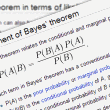
In his shockingly neglected Treatise on Probability, John Maynard Keynes put his finger on the difficulty people have with probability, particularly Bayes’s Theorem: "No other formula in the alchemy of logic has exerted more astonishing powers. For it has established the existence of God from the premiss of total ignorance; and it has measured with numerical precision the probability the sun will rise tomorrow." Probability carries with it “a smack of astrology, of alchemy.”... Read More
Quantum Physics and Bodily Resurrection
by Matthew Allen Newland
Filed under Science, The Resurrection

The Question In the year 587 BCE, the Babylonians destroyed Jerusalem and brought many of the Jews back home as captives. Among them was the prophet Ezekiel. During this dark period of Israel’s history, God promised Ezekiel that Israel would rise again. We can read about it in the Book of Ezekiel, where God leads His prophet out to a battlefield in a valley, strewn with the dry, dusty skeletons of Jerusalem’s fallen army. There, God makes Ezekiel a strange request: He tells... Read More






